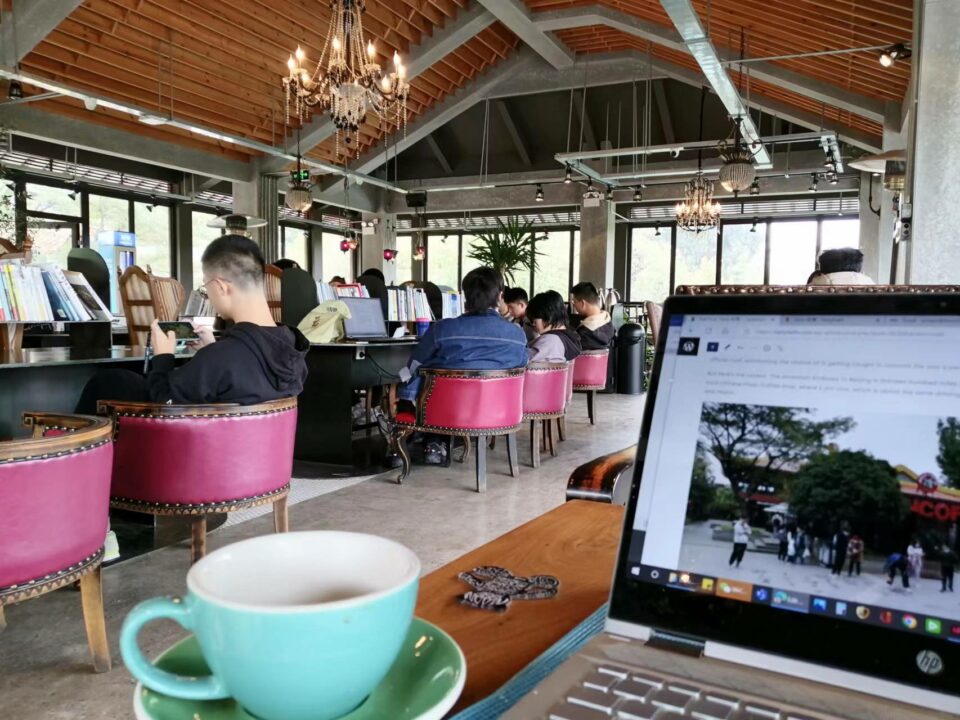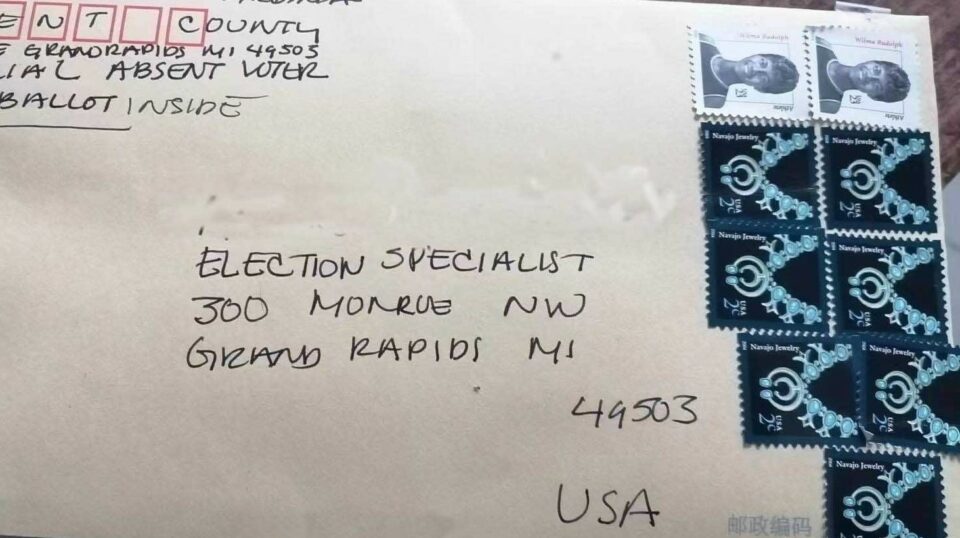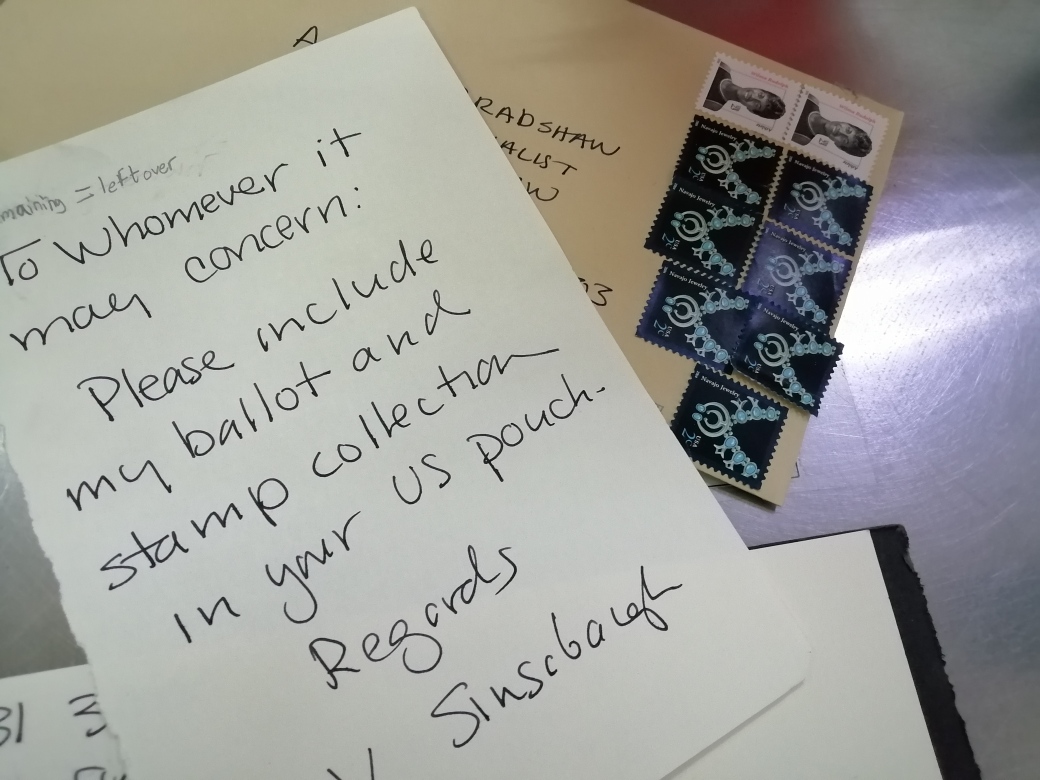In Chinese, the word for vote is 投票 to tóu piào. I don’t know why China has the word here as voting is not a right that the average person has.
As an American living abroad, I value that right, make that responsibility. But casting an absentee ballot vote from China is a lot more challenging than finding a parking spot near city hall. Let me walk you through the process.
JULY
Yes. July. I received an email message from the US government stating that voting policies have changed. In order to cast an absentee ballot in November, I would have to send a postcard to the US Embassy in Beijing that month. Not a postcard of something cool, but the postcard that was attached to the official government email. It was a postcard that wasn’t even a postcard. According to the official instructions, the absentee ballot registration postcard had to be hand-delivered to the Beijing Embassy in July in order to vote in November. Why this rigamarole? The US Embassy regularly sends a mail pouch to the States with official mail, eliminating the chance of it getting caught in customs the way a personal letter of a bag of Tootsie Rolls would.
Hand-delivered to Beijing?
Keep in mind that the American Embassy in Beijing is thirteen hundred miles from my favorite table at the local Chinese Maan coffee shop in Kunming on Green Lake, where I am seated now. That’s about the driving distance between Chicago and Miami–without rest stops or potty stops at the Waffle House, but walking would definitely burn off the exotic drink I just slurped down. But thirteen hundred miles? I am not a drone or Uber Eats. I will not make a trip to Beijing just to deliver a stupid piece of mail.

I tried calling my representatives in Michigan to ask about this ludicrous demand of delivering the postcard in person, especially since the Beijing Embassy could be shut down any random day due to a covid case. Of course, my calls were not acknowledged by my congressman, nor were my emails. So, I whined to the Bejing Embassy. They OKed me to express mail my postcard to them.
AUGUST
For the next several weeks, I waited for an email stating my hurry-up-and-send-it-now-postcard was received. Nothing. File this in my “When Hell Freezes Over” folder.
SEPTEMBER
At the end of the month, I finally received my absentee ballot from the state of Michigan, the day before it was due in Beijing.
OCTOBER
I printed the ballot, even though it was too late to make the official pouch.
The official government email gave explicit instructions to print the ballot on 8.5 by 11 paper, which doesn’t exist in Asia. The standard paper size here is A4.
The typeface on the absentee ballot was ridiculously small. It must have been designed by the same guy who writes names on rice. I did my best, even with the candidates running for the intermediate appellate courts, the third district court of appeals, and school boards. I folded my ballot as instructed, and placed it in a letter-sized envelope when I realized I had another problem.
I didn’t have any American postage stamps.
I was supposed to receive a downloadable NO POSTAGE NECESSARY thing-a-ma-jiggy to stick on my absentee ballot, but I wasn’t. So where could I find a US postage stamp in China? It would be needed so that once my ballot arrived in America in that stupid pouch, it could be mailed to Michigan.
Knowing that postage stamps are about the only thing not made in China, I remembered having a handful of American postage stamps at school, in a jar with a few wheat pennies and nickels. I raided my measly stamp collection, much to my students’ chagrin.

Goodbye to two Wilma Rudolphs and a few rows of Navajo Jewelry. You are my price to vote.
Now, the final step: how to get Wilma to America by November.
One option would be to use the Chinese version of express mail to get my ballot to Michigan. This would cost about thirty US dollars and still take two weeks. The other option would be to try my luck and send ny ballot to the US Embassy, crossing my fingers that there would be another mail pouch to the USA that month.
I went with option two, costing twenty-eight dollars less. I had to bring my passport to the China Post office to express mail my ballot to Beijing. The woman working at China Post day looked at my envelope covered with stamps, wondering what was inside.
Freedom was inside my envelope. Something she will never know.
At that moment, it no longer mattered how difficult it was to vote while living in China. I had the right.

Who was Wilma Rudolph? She was a sickly child who had to wear a brace on her left leg. She overcame her disabilities to compete in the 1956 Summer Olympic Games, and in 1960, she became the first American woman to win three gold medals. Now she overcame the hurdles of absentee voting to get my ballot to Michigan.

